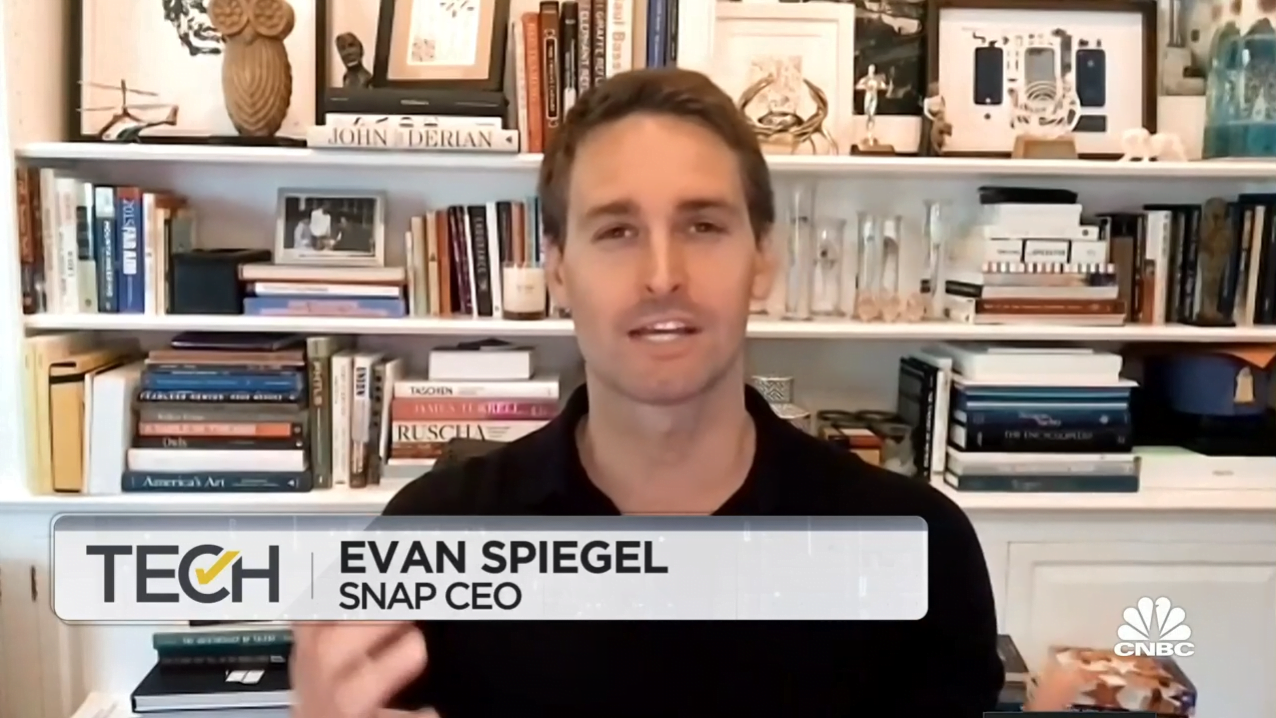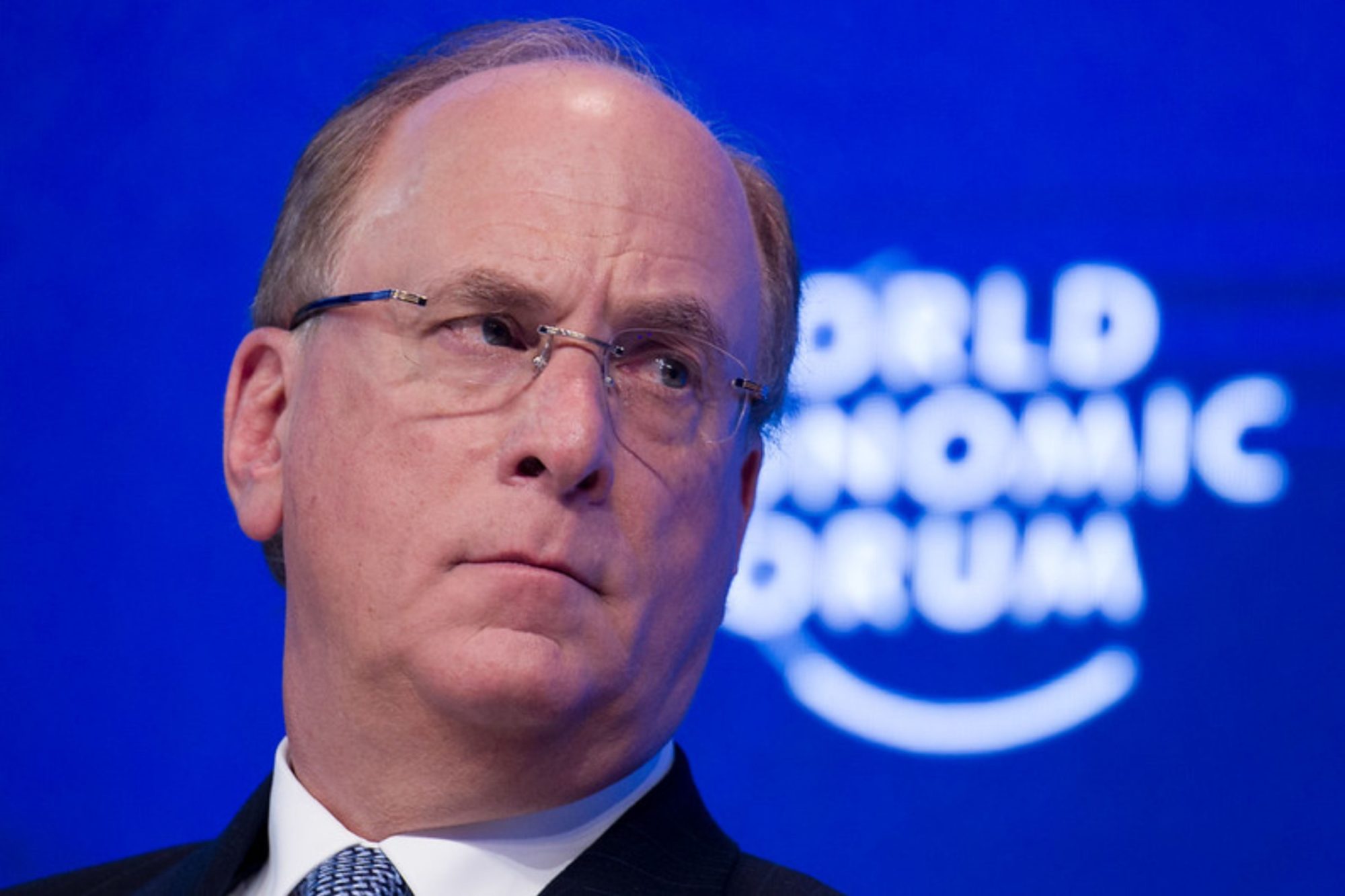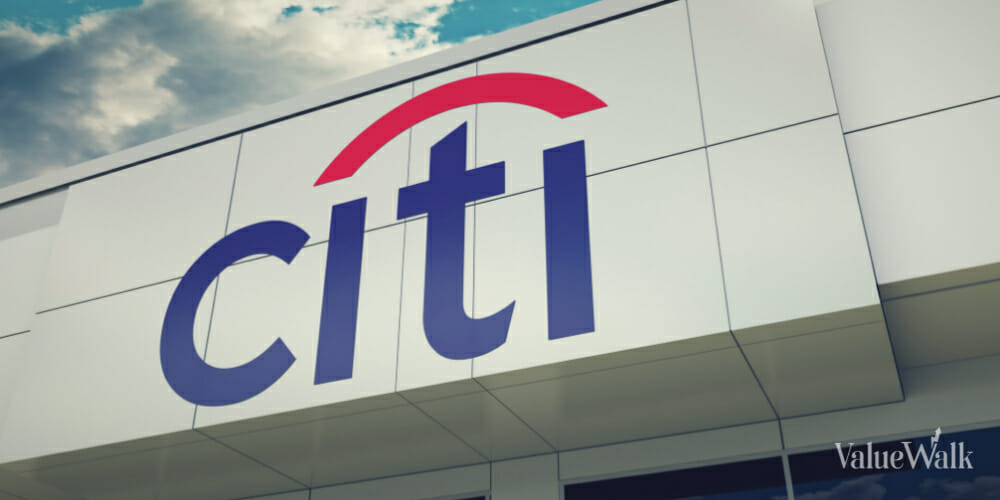Following is the unofficial transcript of a CNBC exclusive interview with Snap Inc (NYSE:SNAP) Co-Founder & CEO Evan Spiegel on CNBC’s “TechCheck” (M-F, 11AM-12PM ET) today, Friday, February 4th. Following is a link to video on CNBC.com:
Q4 2021 hedge fund letters, conferences and more
JULIA BOORSTIN: Thanks so much Carl. I am joined now by Evan Spiegel, CEO of Snap. Thanks for being with us this morning on those better than expected results.
EVAN SPIEGEL: Hey Julia, happy Friday. Thanks for having me. It's great to be here.
BOORSTIN: Happy Friday to you as well. I wanted to start off with the revenue growth which exceeded expectations. You also guided to better than expected revenue growth in the first quarter. My question is what has changed since last quarter when you warned there was going to be meaningful impact from those Apple operating system changes limiting your ability to target ads. What's changed in the past quarter?
SPIEGEL: We definitely made some solid progress. Our DR business bounced back faster than we expected. We're still not where we'd like to be. But our advertisers were able to adopt a lot of our first party tools like advanced conversions and estimated conversions, which they can use in conjunction with Apple's tools and with other third-party tools for conversion lifts, and media mix modeling and all of those tools together I think now give advertisers a good picture of the results that we're able to drive and they're willing to continue to invest in our products to drive their businesses and continue to grow. So, we're really excited to see that progress, not out of the woods yet. We've got more work to do, but certainly a meaningful step forward.
BOORSTIN: Yeah, you know, Evan, we're seeing your stock rebound, it’s up about 45% today, after dropping so dramatically on Meta’s results, which raised broad concerns about the industry. What should investors know about how your business particularly when it comes to navigating those Apple changes is different from Meta’s?
SPIEGEL: Well, I think just overall, we're much earlier in our monetization journey. So, if you look at the average revenue per user that we're generating relative to Facebook or even to a Twitter, it's a fraction. So, we're much earlier and of course, we've got this really large and engaged audience that that's difficult to reach and, and we're making progress over time, but I just don't think we have some of the similar, you know, pricing dynamics, for example that they have and so we've had a little more flexibility to be able to navigate the changes. We also built our advertising stack from the beginning to be privacy protective. And so, this may have been a little bit less of a, you know, shocking transition maybe than it was for them.
BOORSTIN: Interesting, now you mentioned your user growth. You did grow users faster than expected as well while we just saw Facebook lose daily active users. What's behind your user growth?
SPIEGEL: Well, I think our products are just really resonating with our community and we've been able to really diversify our product over the years. So, in the beginning, people started using Snapchat to communicate with their close friends and family using our camera and we built an augmented reality platform on top of that, so people can express themselves with all these great lenses and we built a map so people can see what their friends are up to, excuse me, and see what's happening around the world. And of course, with stories and now with spotlight, we've got so many different ways to engage with our platform and, and we think that's really helping to drive our growth.
BOORSTIN: Evan, I have to ask about TikTok though. TikTok was singled out by Mark Zuckerberg as a key part of their competition and one of their main challenges. What kind of impact are you seeing from TikTok?
SPIEGEL: We definitely compete with TikTok when it comes to video entertainment so in our stories product and our spotlight product and video entertainment in general on mobile is highly competitive, whether it's TikTok or Instagram or Facebook or YouTube, but ,but TikTok is a is I think a unique challenge in that they you know, have a privileged and protected position in the Chinese market that, you know, Instagram or Facebook or Google or us aren't, aren't actually allowed to access so they're able to take that protected position in the market generate an excess return because they don't have to compete with us over there and then reinvest that, you know, the United States and Europe. So, I think that that's what makes them a bit of a different and unique competitor. But again, our service is really built on this core of communicating with your friends and family, expressing yourself through our camera and our product is quite diversified. So even though we compete with them in some areas, I think in these areas like augmented reality, for example, we have a highly differentiated platform, you know, the technology but also now, you know, the hundreds of thousands of developers and millions of lenses we have on our platform.
JON FORTT: Hey, Evan, good morning, it’s Jon Fortt. On the call, you said the friends story posting and viewing per daily active user haven't yet returned to pre-pandemic levels. Give us some color if you can about how whether it's lockdowns or vaccination rates have affected engagement usage of the platform and therefore your prospects on being able to monetize and entice more users going forward.
SPIEGEL: Yeah, so you know, if we look at the, you know, year over year numbers in aggregate, basically what we saw was that, you know, friends story viewing and friends story posting declined, and then viewership of premium content, you know, content and spotlight had increased. And, you know, this is pretty consistent with the overall trend we've seen during the pandemic, where, you know, people essentially told us, you know, there was this big surge in the beginning where everyone was posting and updating their friends on what they were doing. And then throughout the pandemic and throughout the lockdowns, there were just less interesting things to post, you know, people were stuck at home and as a result, I think stories were less interesting as well. So, it'll be interesting to see, you know, how this evolves, you know, hopefully as we progress through the pandemic and folks travel more and get out with friends and, you know, start to have more fun together out in the world. It's definitely something we're keeping a close eye on.
DEIRDRE BOSA: Hey Evan, it’s Deirdre. Something else that stuck out to me on the call last night was how you guys are already delivering on augmented reality advertising. You guys said that you're pushing it out, brands are and companies are, they're delivering and it is delivering a return on investments. Ultimately, though, does that model get disrupted when we get if and when we get a more immersive metaverse that operates through virtual reality. Do you need to work on a VR offering given all the activity in this space or are you already?
SPIEGEL: There’s definitely a lot of excitement around virtual reality but we've been focused on augmented reality gosh for, you know, almost 10 years now mostly because we believe people are going to continue to spend the vast majority of their time with their friends and family in the real world and they're going to want to augment that with more immersive computing. So of course, today you can use AR through the smartphone and try on products. I think, you know, one of the things you may be referring to is the amazing adoption by beauty brands in particular who have found out that product trial is way cheaper, and they can reach more people using augmented reality. So Ulta Beauty has brought a lot of their catalog into augmented reality and in a two-week period, you know, they saw I think 30 million try-ons of their products and, you know, incremental $6 million in revenue so AR can drive real business results for brands today and of course our community loves it. You know, 200 million people engage with AR on Snapchat every single day. So, AR is an incredible opportunity today on the smartphone and then as we transition to this future with glasses, for example, you'll get a much more immersive field of view, you're able to walk around and use your hands to interact with computing and, and all of that really does change the computing experience. But it's predicated on this idea that AR augments the real world that we all share rather than, you know, helping you escape to somewhere else.
BOSA: Some people think though that AR and VR are going to complement each other like the desktop and the laptop, for example. So, are you just not working on a VR offering? Do you think that that won't be the case?
SPIEGEL: We're just focused on where we see the biggest opportunity and also where we think we have a unique opportunity to provide our community with a totally, you know, a special experience and that's because we've been focused on the camera from the beginning of our business. Snapchat’s always opened into the camera. That's how we were able to develop our AR platform over time and, you know, now that people come into our camera every single day and I think play with something like six, you know, play with lenses 6 billion times every single day. We've been able to expand that offering, build more sophisticated developer tools and that's really given us, you know, I think a bit of a head start as we move towards this, you know, world of augmented reality. So, I guess I would just say we're focused on where we think we can win and we think that's a really big opportunity.
BOORSTIN: But, Evan, just to follow up on Deirdre’s question, you know, there's this this question about interoperability in the metaverse or metaverses as, as it might be, and you know, you have Bitmojis, those are avatars. Do you see the ability to bring those onto other platforms or to have your AR be compatible with VR and some of these metaverses?
SPIEGEL: Absolutely, we actually already offer that ability today. People love their Bitmojis and really feel like they relate to them. Feel like it's really an expression of who they are and so we actually help people bring their Bitmoji to all sorts of different platforms, whether that's our partnership with Samsung, for example, or Google, people can use their Bitmoji across all sorts of different platforms that, you know, we also have a Unity plugin as well so that developers can bring 3D Bitmojis into their games so that's definitely been something that's, that's an exciting opportunity for us.
BOORSTIN: Let's talk a bit more about the financial opportunity in augmented reality. You just laid out how advertisers can use AR to drive engagement, obviously, that would make them want to buy more ads, but what about your AR tools themselves? You're starting increasingly to bring them off the platform, some companies like Disney can use them, but is there a way for you to make money on that?
SPIEGEL: That's a great question. So today, we're just focused on driving the adoption of augmented reality and what we noticed as we were talking to different businesses is that they realized that AR is so core to their business that they want to have those tools inside their own applications and on their own websites. And so, what we've done is take our AR technology and make that available to our partners to build their own AR experiences and over time, what we find is that when partners realize how powerful augmented reality is on their own applicantions, on their websites, they want to drive increased distribution of those AR experiences through Snapchat where we have this, you know, audience that you know, 200 million people engaging with augmented reality, every single day. So, for now, we're just trying to help people adopt the tools, learn how to use them, see the business results for themselves, and then of course, provide opportunities for them to, you know, get additional reach and, and grow their business even faster by promoting their AR experiences on Snapchat.
BOORSTIN: Interesting now you also have some other features such as the map and spotlight that you haven't really started to make money from yet. What can you tell analysts and investors about the, what, what the potential is, of these, these potential revenue streams?
SPIEGEL: We're very excited about the potential both spotlight and the map. They're very, very different products. Of course, spotlight lends itself to an advertising format that we helped pioneer, this vertical video and so I think, you know, through some of our early tests and monetization on spotlight, we're prepared to monetize that whenever we're ready. We're, we're focused right now just on that product experience, on making sure that we've got a deep base of unique content made by all the incredible creators on Snapchat. And then over time, we'll think about monetization, but we feel like the infrastructure is ready to monetize spotlight, you know, as soon as we feel like the product experience has evolved to the right place. And then on the map, we're continuing to evolve that product overall to make sure that the base map, the map that you see when you open up our map, is personalized in a way that really makes it feel unique to you based on what your friends are doing or places that are important to you or places your friends really like to go and, and that personalized base map will lay the groundwork for the way that people will engage with different places and discover places on our map and of course over time will then evolve that into a business as well because lots of local businesses are trying to reach new customers and as people use our map to explore the world around them, that's that's a perfect place for those local businesses to gain a larger audience.
BOORSTIN: Well, we will be watching to see when ads start popping up on those different features. Evan Spiegel, thanks so much for joining us. Your stock up about 47%. Carl, back over to you.













